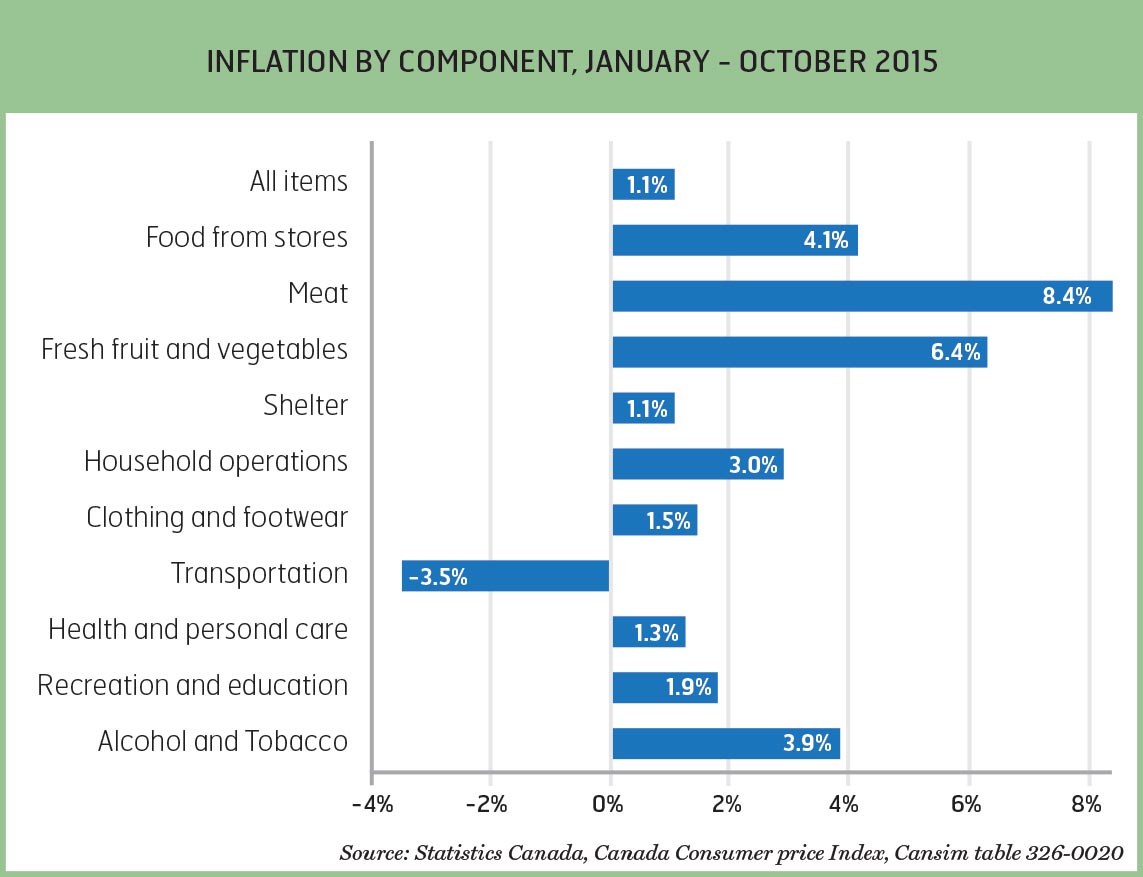
Average wage increases for public sector workers have been slightly below average in private sector settlements as they have been for four of the past five years. As more provinces are demanding wage freezes from their employees, this gap between public and private sector wage increases can be expected to widen in the last quarter of 2015.
The gap is also growing between workers under provincial jurisdiction and those under federal jurisdiction.
The slowdown of wage increases in collective agreements was matched by lower wage increases in the broader economy. In August, average weekly earnings rose by only 0.8 per cent compared to a year earlier—the lowest increase in over a decade. This very slow growth in earnings was the result of not just slower wage growth, but also a drop in hours worked and a loss of higher wage jobs.
With the decline in gas prices, inflation has remained low in 2015, averaging just 1.1 per cent in the first nine months of the year. Meanwhile the price of food purchased from stores has increased by 4.1 per cent nationally so far this year, fresh fruit and vegetables are up by 6.4 per cent and meat up by 8.4 per cent.
Overall consumer price inflation is expected increase by almost two per cent in both 2016 and 2017.


